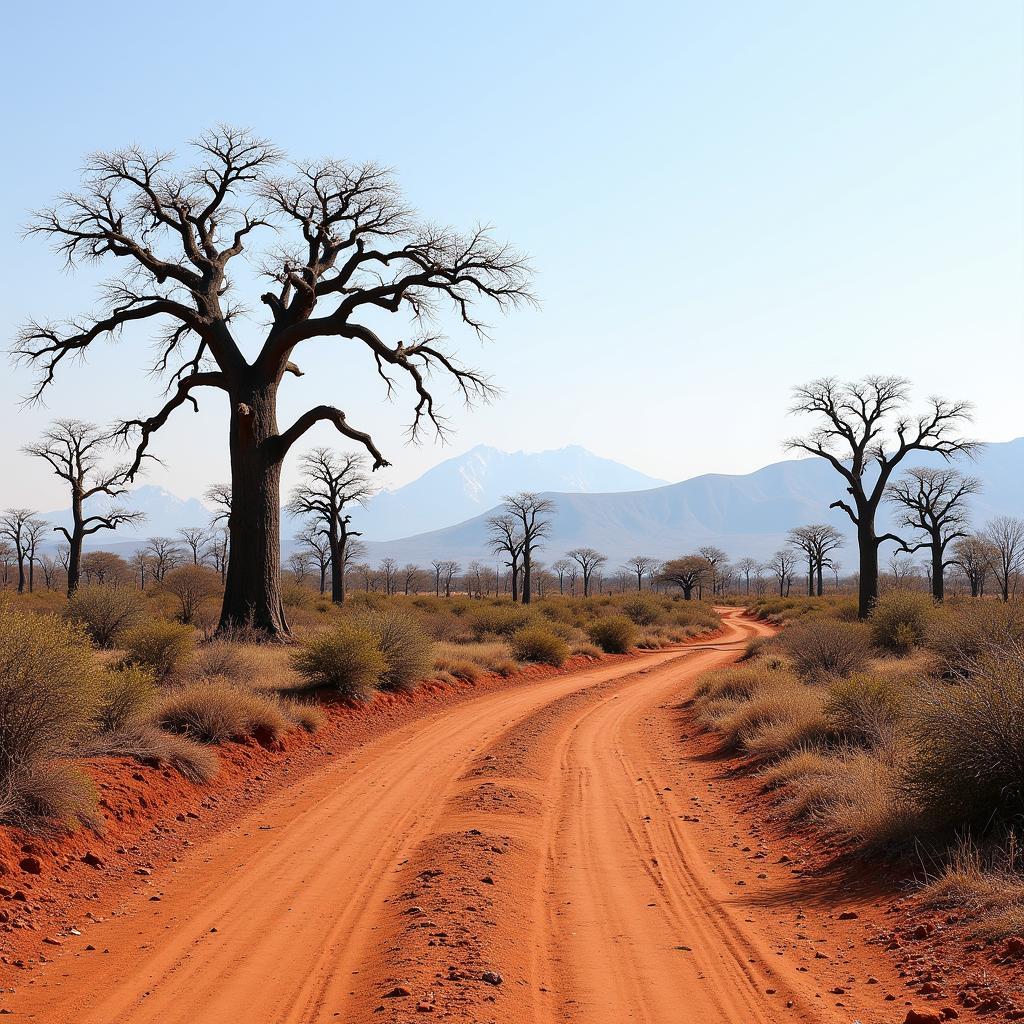African Antiviral Herbs: Nature’s Defense Against Viruses
Africa, a continent brimming with natural wonders, is also home to a rich tradition of herbal medicine. For centuries, indigenous communities have relied on the healing properties of plants to combat various ailments, including viral infections. This article delves into the world of African Antiviral Herbs, exploring their history, uses, and scientific evidence supporting their potential health benefits.
A History of Healing: Antiviral Herbs in Traditional African Medicine
The use of herbs for medicinal purposes is deeply ingrained in African culture. From the vast savannas to the lush rainforests, traditional healers have a profound understanding of the therapeutic properties of plants. Antiviral herbs, in particular, have played a crucial role in treating viral infections, which have long plagued the continent.
Dr. Ngozi Amah, a renowned ethnobotanist, explains: “For generations, African communities have relied on these herbs to ward off viral illnesses. Their knowledge is passed down through oral traditions, often accompanied by stories and rituals, ensuring the preservation of this valuable knowledge.”
Key Antiviral Herbs from the African Continent
While numerous African herbs possess antiviral properties, some stand out for their frequent use and scientific validation. These include:
1. Neem (Azadirachta indica)
Neem, a tree native to India and widely cultivated in Africa, is renowned for its versatility in traditional medicine. Neem leaves, bark, and seeds contain potent antiviral compounds that have shown activity against various viruses, including herpes simplex virus, influenza virus, and HIV.
Dr. Amah adds: “Neem is a true powerhouse of nature. Its antiviral properties, coupled with its anti-inflammatory and immune-boosting effects, make it a valuable asset in combating viral infections.”
2. Garlic (Allium sativum)
Garlic, a staple in many African cuisines, boasts impressive antiviral properties. Its active compound, allicin, has demonstrated potent activity against a range of viruses, including the common cold virus and influenza virus.
Studies suggest that: Garlic consumption may help boost the immune system and reduce the severity and duration of viral infections.
3. Ginger (Zingiber officinale)
Ginger, another widely used culinary spice in Africa, possesses anti-inflammatory and antiviral properties. Its active compound, gingerol, has shown activity against various viruses, including respiratory syncytial virus (RSV), herpes simplex virus, and influenza virus.
Ginger is often used in traditional medicine to: Relieve symptoms of colds, flu, and sore throat. Its calming effects on the digestive system can also be helpful in reducing nausea and vomiting associated with some viral infections.
Scientific Evidence Supporting African Antiviral Herbs
While traditional knowledge has long recognized the antiviral properties of these herbs, scientific research is increasingly validating their efficacy. Studies have shown that these herbs:
- Inhibit viral replication: They interfere with the ability of viruses to multiply and spread within the body.
- Modulate the immune system: They enhance the immune response, helping the body fight off viral infections more effectively.
- Reduce inflammation: They help reduce inflammation, which is a key symptom of many viral infections.
How to Use African Antiviral Herbs
These herbs can be incorporated into your diet or used in various ways to promote overall health and boost your immune system.
Here are some common uses:
- Infusion: Steep herbs in hot water for 10-15 minutes and drink the tea.
- Decoction: Boil herbs in water for 15-20 minutes, strain, and drink.
- Tincture: Extracts of herbs dissolved in alcohol.
- Topical application: Applying herbal oils or pastes directly to the skin.
It’s crucial to note: Always consult with a healthcare professional before using any herbal remedies, particularly if you have underlying health conditions, are pregnant, or breastfeeding.
FAQ:
1. Are African antiviral herbs safe for everyone?
While generally safe, some individuals may experience allergic reactions. Always consult with a healthcare professional before using any herbal remedies, especially if you have pre-existing conditions.
2. Where can I find African antiviral herbs?
These herbs are available at health food stores, online retailers, and traditional markets in Africa.
3. Can African antiviral herbs cure viral infections?
While these herbs may help alleviate symptoms and boost the immune system, they are not a cure for viral infections. Always consult with a healthcare professional for proper diagnosis and treatment.
4. Are there any interactions between African antiviral herbs and medications?
Some herbs may interact with medications, so it’s essential to inform your doctor about any herbs you are using.
5. How long does it take to see results from using African antiviral herbs?
The time it takes to see results varies depending on the herb, the severity of the infection, and individual factors.
6. Can I use African antiviral herbs to prevent viral infections?
While these herbs may help boost the immune system, there’s no scientific evidence to support their use as a preventative measure against viral infections.
7. Where can I learn more about African antiviral herbs?
You can find more information about African antiviral herbs through reputable sources such as scientific journals, books, and online databases.
Remember: Using African antiviral herbs can be a valuable approach to enhancing overall health and supporting the body’s natural defenses against viral infections. However, always consult with a healthcare professional for proper guidance and to ensure safe and effective use.



